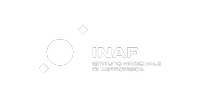ASTRONET
Abstract: Co-operation has made European astronomy a leader in the field. Defending this position will require a new generation of infrastructures that are feasible only at the European or global level. Through ASTRONET, the key European actors in this field, national research funding agencies and international organisations, will establish a comprehensive, consensus based, coordinated strategy for developing European astronomy at all wavelengths, in all countries, on the ground and in space. To achieve this, ASTRONET will first develop a global, long-term Scientific Vision for European astronomy in a transparent, bottom-up approach. From this, an Infrastructure and Key Technology Roadmap and an implementation plan will be derived in a similar manner, as a guide for major policy decisions. This process will build on the EC-funded ongoing co-ordinating activities in each discipline (I3s, Design Studies, etc.), creating maximumadded value to the research activities funded at the national and European levels and establishing durable co-operation and co-ordination of strategic plans for European astronomy.
All of European astronomy must take part in this effort: unlike money, intellectual capital is evenly distributed all over Europe, including the new Member States and Associated States. This precious resource must be deployed optimally to ensure the rich scientific returns of European Astronomy and its front-line facilities. ERA-NET funding will enableASTRONET to invite all interested and qualified actors to join right from the start, sharing also the key societal returns of modern astronomy, technological spinoff and scientifically and technically trained manpower. Correcting regional and gender imbalances will be an important objective. In parallel, ASTRONET will establish an exchange of information and co-ordination of best practices between agencies and initiate ambitious joint research projects, transforming European astronomy into a true European Research Area.
Dettagli tecnici:

